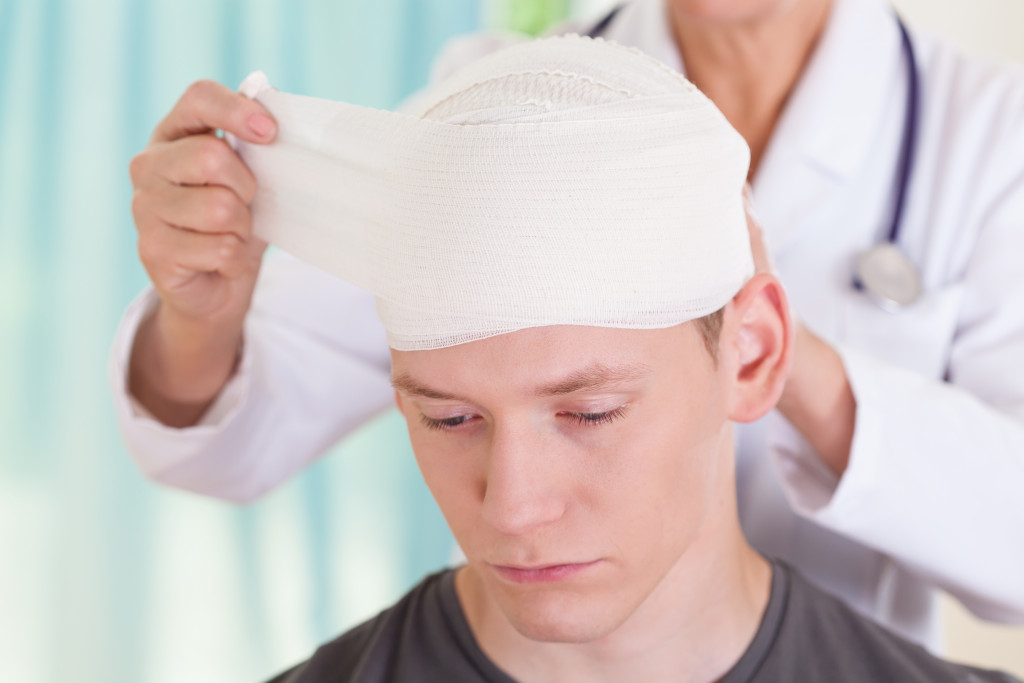Brain injuries can be caused by chemical or physical trauma, such as a fall or blow to the head. These injuries can result in anything from mild concussions to severe permanent damage. The severity of the injury would depend on how close the injury is too crucial areas of the brain.
Causes of Brain Injuries
1. Falls
Falls are the leading cause of brain injuries, and they can occur anywhere, from a slip and fall in your own home to a head injury sustained in a car accident. Falls are especially dangerous for the elderly, who are more likely to suffer serious injuries from a fall.
2. Car Accidents
Car accidents are a major cause of brain injuries, especially in younger people. The force of the collision can cause the brain to slam against the inside of the skull, leading to a concussion or other type of injury. If you have been injured in an auto accident. Speak with an auto accident attorney; they would be happy to help you get the compensation you deserve.
3. Violence
Violence is another leading cause of brain injuries. Whether it is a gunshot wound, a beating, or a fall during a fight, any type of violent injury can cause brain damage.
4. Sports Injuries
Sports injuries are a common cause of brain injuries, especially in contact sports like football and boxing. A hard hit to the head can cause a concussion or other type of injury.
5. Medical Conditions
Certain medical conditions can lead to brain injuries, such as strokes and aneurysms.
6. Lack of Oxygen
Lack of oxygen can cause brain damage in a number of ways, including asphyxiation, carbon monoxide poisoning, and near-drowning.
7. Birth Injuries
Birth injuries can cause brain damage in newborns, such as cerebral palsy and Erb’s palsy.
8. Infections
Infections can cause brain damage in a number of ways, including meningitis, encephalitis, and rabies.
9. Tumors
Tumors can cause brain damage by pressing on the brain or by invading and destroying brain tissue.
10. Traumatic Brain Injury
A traumatic brain injury (TBI) is a type of brain injury that occurs when the head is subjected to sudden trauma, such as from a fall or car accident. A TBI can lead to a number of cognitive, physical, and emotional symptoms.
Effects of Brain Injuries

1. Physical Effects
Brain injuries can cause a wide range of physical effects, depending on the severity of the injury. These effects can include paralysis, loss of sensation, loss of coordination, and problems with vision or hearing.
2. Cognitive Effects
Brain injuries can also cause cognitive problems, such as memory loss, difficulty concentrating, and problems with decision-making and executive functioning.
3. Emotional Effects
Brain injuries can lead to emotional problems, such as depression, anxiety, irritability, and mood swings.
4. Sleep Problems
Brain injuries can cause sleep problems, such as insomnia, sleep apnea, and night terrors.
5. Fatigue
Fatigue is a common symptom of brain injuries, and it can make it difficult to concentrate and perform everyday tasks.
6. Social Effects
Brain injuries can cause social problems, such as difficulty interacting with others, withdrawal from social activities, and a lack of self-confidence.
7. Behavioral Changes
Brain injuries can cause behavioral changes, such as aggression, impulsiveness, and irritability.
8. Developmental Delays
Brain injuries can cause developmental delays in children, such as problems with speech and language, motor skills, and social skills.
9. Seizures
Seizures are a common effect of brain injuries, and they can range from mild to severe.
10. Coma
In some cases, brain injuries can lead to a coma, which is a state of unconsciousness that can last for days, weeks, or even longer.
Treatment of Brain Injuries
1. Physical Therapy
Physical therapy is often recommended for people who have suffered a brain injury. PT can help improve strength, coordination, and mobility.
2. Occupational Therapy
Occupational therapy can help people with brain injuries adjust to any changes in their abilities that have resulted from the injury. OT can help them learn new ways to perform everyday tasks.
3. Speech Therapy
Speech therapy can help people with brain injuries regain their ability to communicate. ST can also help with swallowing and eating disorders that can result from a brain injury.
4. Cognitive Rehabilitation
Cognitive rehabilitation can help people with brain injuries improve their cognitive skills, such as memory, attention, and executive function.
5. Psychotherapy
Psychotherapy can help people with brain injuries deal with the emotional effects of the injury.
6. Medication
Medication may be prescribed to treat various symptoms of brain injuries, such as seizures, depression, and anxiety.
7. Surgery
In some cases, surgery may be recommended to treat brain injuries. This may include surgery to remove a tumor or to relieve pressure on the brain.
8. Brain Stimulation
Brain stimulation treatments, such as transcranial magnetic stimulation (TMS) and vagus nerve stimulation (VNS), may be recommended for people with brain injuries. These treatments can help improve cognitive function and reduce symptoms such as depression and anxiety.
Brain injuries can have a devastating effect on victims and their families. The physical, cognitive, and emotional effects of brain injuries can be life-changing. However, with proper treatment, many of these effects can be managed or overcome.
